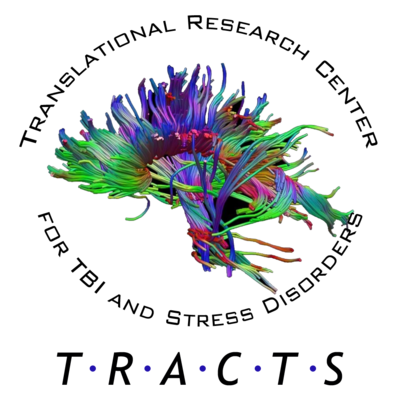When people think of mild traumatic brain injury (mTBI), or concussion, they think of someone getting “knocked out” or feeling “fuzzy” after getting hit in the head. Indeed, doctors use these very symptoms to diagnose a concussion. TRACTS research is challenging the idea that brain injury only occurs when it produces these symptoms at the time of the injury. Specifically, they have been looking at the effects of being close to at least one explosion (like a roadside bomb) while in service. Their work has revealed changes in the way different parts of the brain communicate in Veterans who were very close to one of these explosions compared to those who had never been so close. These changes were found in Veterans whether or not the blast produced symptoms of concussion, like being knocked unconscious or feelings of fuzziness. The important factor was only that the Veteran was within 10 meters (about 30 feet) of the explosion. Blasts that occurred further away did not appear to result in these brain changes. However, they also found that explosions, even those further away, may alter the way the brain ages, with the brains of Veterans exposed to a blast appearing to age faster. Although both of these effects of blasts can be seen across the entire group, more research is needed to determine how any one Veteran will be effected by their own blast exposure. Both of these effects were found using Magnetic Resonance Imaging (MRI), which is the brain scans that TRACTS participants take part in at the end of their day with the TRACTS lab. These finding are very important for understanding the way the brain responds to experiences that Veterans encountered during their service. However, more work is needed to understand what role (if any) these brain changes have on daily function and health of Veterans. These are areas that TRACTS researchers are exploring now.
New England Geriatric Research, Education and Clinical Center (GRECC)
Geriatric Neuropsychology Laboratory (GNL)
Translational Research Center for TBI and Stress Disorders (TRACTS)
Building G, Floor 1, F-Wing
150 South Huntington Avenue Boston, MA 02130

Copyright © 2024 The President and Fellows of Harvard College | Accessibility | Digital Accessibility | Report Copyright Infringement